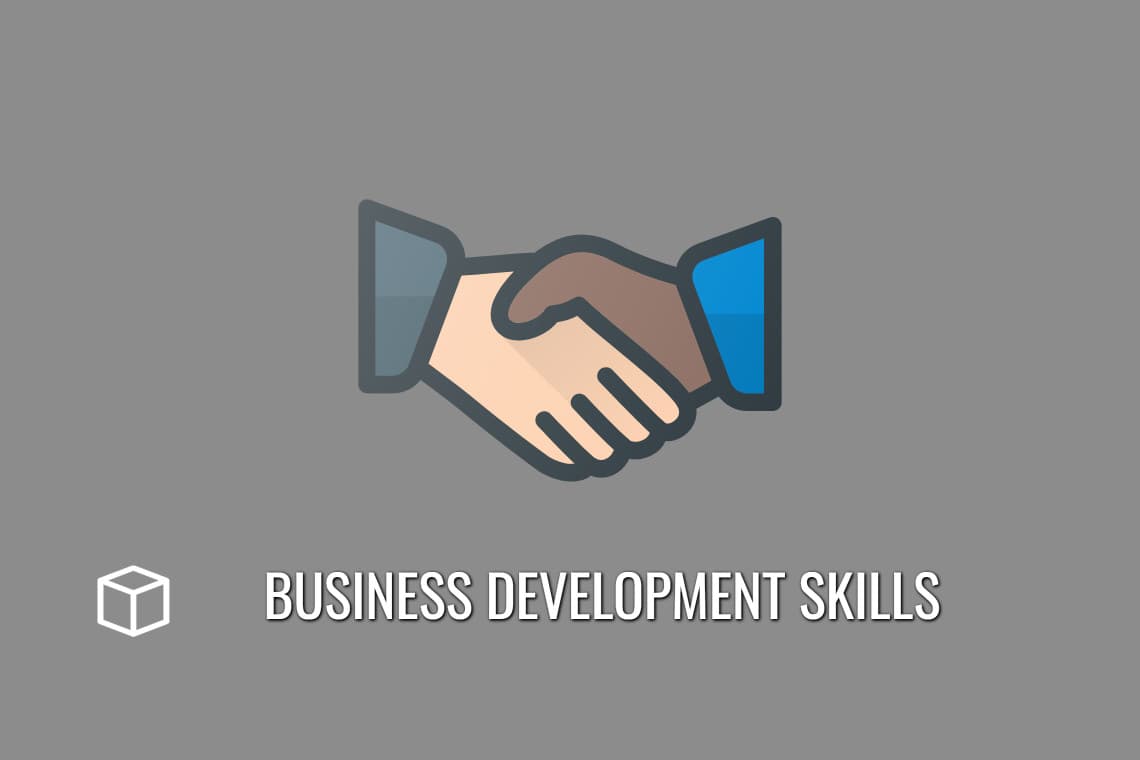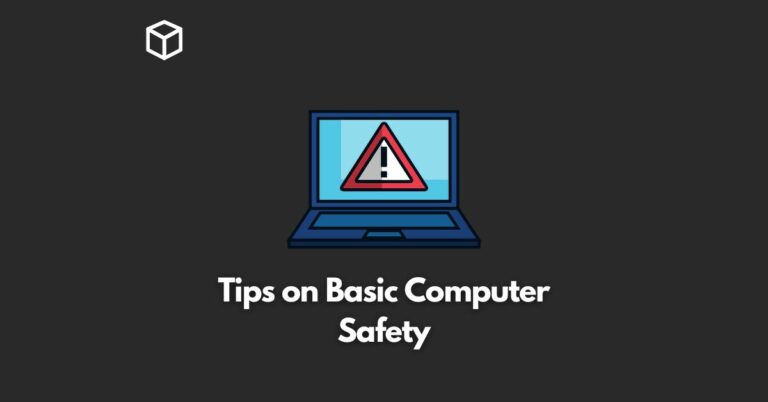One of the most important skills for a business owner to acquire is the ability to successfully identify and work with prospective customers.
This article will provide you with the crucial skills that will help you increase your business development success.
How To Build Business Development Skills
What is Business Development?
Business development is a term in business administration for the activity of promoting a company’s goods and services in a competitive market.
It is the process of creating and maintaining long-term business relationships with customers in order to secure revenue growth.
Business Development vs. Sales
Business development is the process of developing an organization’s business in that it enhances revenues and may increase assets, profits, or shareholder value.
Sales is the act of exchanging goods or services for currency, either in the form of cash or credit.
Sales can occur via multiple channels, including face-to-face interactions, auctions and online marketplaces.
A business owner who achieves an economic transaction is “selling” to his customer—whether he actually exchanges currency for an order received is not the relevant factor.
Sales is also understood to describe a particular type of organizational behavior, in which an employee acts as if they are selling, even when not directly engaged in doing so.
The term ‘sales’ may be used to describe organized activities that do not involve selling or that do not necessarily reflect the unique selling proposition (USP) of the product or service being sold.
For example, sales presentations may be organized events to create interest in goods or services but are not intended to lead to actual sales transactions—as they are merely intended for marketing purposes.
Business development is any activity that furthers the success of an organization’s activities, operations and growth by engaging with key stakeholders, developing new business or improving existing business.
Common activities undertaken by organizations include creating marketing strategies to develop brand recognition, working with suppliers to reduce costs and identifying potential acquisitions or merger opportunities.
Business development is the process of achieving an economic exchange for goods or services through multiple channels—as opposed to a direct sale, i.e., a sale achieved through direct contact, face-to-face interaction or on a company’s website.
Sales depends on an economic transaction being achieved whereas business development does not necessarily involve an exchange of currency at all.
Business Development Terms
Business Development: Business development is a process that is often undertaken by organizations to increase their sales and profits.
Development Planning: Development planning is the process of looking at all aspects of an organization and mapping out key issues, options and opportunities.
Market Analysis: Market analysis is the process of figuring out what customers need and want and translating those needs and wants to products or services.
Marketing Strategy: Marketing strategy includes studying the market, understanding who you are marketing to, aligning your offerings with current trends, setting pricing based on research etc.
Marketing Mix: The marketing mix is the combination of product/ service, price, place and promotion that determines which markets an organization targets.
Customer Relationship Management (CRM) Systems: CRM systems were originally designed to track sales, now they are used for a lot more including tracking customer preferences and offering their customers a tailored experience.
Marketing Processes: A marketing process is a sequence of tasks that are completed when managing any aspect of the marketing mix.
Product Development Cycle: The product development cycle is the period from finding out about customer needs to creating, launching and promoting new products.
Sales Analysis: Sales analysis is when you look at how sales are performing in different parts of the world, over a period of time and based on different variables.
Operations: Operations involves making decisions about how products will be made and distributed to meet customer demand, including both internal factors (such as numbers employed) and external factors (such as labor costs).
Marketing Research: Marketing research is the process of collecting and analyzing data to help work out how to market a product or service.
Sales Forecasting: Sales forecasting is when you figure out how many sales are likely to be made in the future, based on current trends and projections.
Brand Analysis: A brand analysis allows companies to understand what they are doing well and what they could improve on.
Consumer Behavior: Understanding the psychological and physical reasons that influence consumers to buy goods or services is key to effective marketing.
Customer Analysis: A customer analysis allows organizations to determine who their customers are and gain information about those customers, such as who they are, how many of them there are, what they buy and why they buy.
Market Segmentation: Market segmentation is when you break down your total market into different types of customer, based on specific characteristics or needs.
Target Market: Targeting a certain type of customer helps an organization to engage with people who are most likely to be interested in their products or services.
Pricing: Pricing a product is all about deciding on the right price to charge for your products or services given research, perceived value and competitor activity.
B2E Marketing: Business-to-employee marketing focuses on engaging with employees of an organization from recruitment, to training, to decision making and beyond.
Business to Business – B2B Marketing: B2B marketing is the process of promoting products and services to other businesses as customers, as opposed to individual consumers.
Basic Skills for Business development
For a business to survive and grow, it is necessary for it to have access to new markets.
The first skill that every business person needs is the ability to be able to start a conversation with someone they don’t know. The second skill would be having the adeptness to find common ground with others. The final skill that most businesses require is the ability to persuade people into thinking that their company has something that they might want or need.
All three of these abilities are necessary in finding the markets that businesses need to grow.
Selling one’s self is much easier when they have something that other people want, but it is still a process that can be done without these things. However, this skill becomes increasingly important when it comes to marketing products because you must convince customers why they should purchase the product when they don’t know about it.
Cross-cultural communications is very difficult, and it is best to not sell something until you understand the culture in which you would like to sell it in.
Business Development Skills
The best business development skills and traits and qualities and traits of a high-quality business developer:
1. Has a strong understanding of the marketplace including its needs, wants, and attitudes for solutions to them
2. Has great communication skills that can be used in negotiations with prospective customers
3. Is able to identify common characteristics of prospects such as their attitude towards risk, style for decision making, and information gathering styles
4. Is able to translate mission, vision, strategy into actionable change for individuals or teams
5. Is able to produce plans of action that are identified, organized, and professional
6. Has great interpersonal skills that can be used in interviewing clients and prospects
7. Can collaborate successfully across the organization at different levels
8. Has strong problem-solving abilities that can be applied to business development opportunities including developing proposals and recommendations for solutions
9. Can assess the best ways to approach opportunities such as identifying the decision maker, timing, and location
10. Develops strong relationships with internal and external groups including sales teams, clients, vendors, etc. that can be leveraged during the sales process
11. Can create a positive team work environment that enables the team to focus on the right priorities and perform their best
12. Can provide relevant feedback from customers to improve products and services
13. Has strong negotiation skills that can identify needs, wants, and constraints of parties to a deal
14. Conducts market research that is useful for development of new product ideas or support of existing products or services
15. Can foster innovation and creativity through support of small internal groups, brainstorming sessions, or brainwriting, process for generating new ideas
16. Has strong decision-making abilities that can be applied to business development opportunities including making recommendations based on analysis presented by the team
17. Is able to produce plans of action that are prioritized, recognized, and quantified
18. Has a strong understanding of customer needs and wants, recognizes the competition even when they are changing, uses a variety of methodologies to gather information from customers and other sources, can effectively synthesize data from multiple sources, articulates unresolved issues in ways that will engage team members’ energy to move forward
19. Has strong change-management abilities that can be used to implement goals and objectives developed by the teams, lead groups through a variety of situations including conflict resolution, and promote root cause analysis for continuous improvement
20. Can foster innovation and creativity through support of small internal groups or brainstorming sessions
21. Has strong organization skills that can be used in managing projects, tracking issues and risks, distribute information to the group in a timely manner
22. Has strong presentation skills that can be used in coaching clients through presentations for new product ideas or enhancements of existing products or services; providing input during client presentations; selling business development opportunities internally
23. Can use reporting tools to communicate team activities and results including converting data into meaningful information that can be shared, tracking activities and results across the organization
24. Can provide relevant feedback from customers to improve products and services
25. Has strong conflict resolution skills that can be used in coaching clients through presentations; selling business development opportunities internally; identifying potential areas of conflict before they occur.
Other Articles
- What is Project Management
- What is Software Development
- What is Technical Writing and why it is used
- How to Take Notes
- How to Give a Good Presentation
- What Is Emotional Intelligence
- What is Nonverbal Communication
- How to Develop Your Skill Set to Advance Your Career
- Setting Goals To Improve Your Career
- What is a SWOT Analysis




